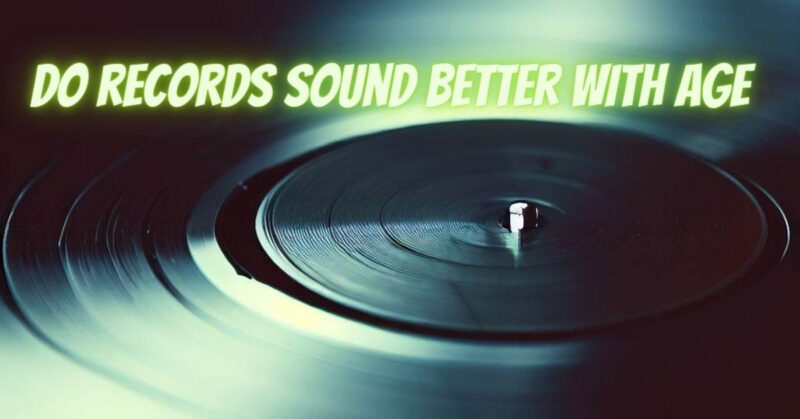Vinyl records have a timeless appeal, and their unique sound has captivated music enthusiasts for decades. Over time, a common belief has emerged that records improve in sound quality with age. In this article, we will delve into this notion and separate fact from fiction, exploring whether records truly sound better as they age.
The Nature of Vinyl Records:
Vinyl records are made of a durable material called polyvinyl chloride (PVC), which is known for its longevity and stability. When properly cared for and stored, records can retain their original sound quality for many years. However, the idea that records inherently improve in sound as they age is not entirely accurate.
Record Aging Factors:
- Wear and Tear: With repeated use, records can experience wear and tear, resulting in audible surface noise, clicks, and pops. Any damage or imperfections, such as scratches or warping, can negatively impact sound quality. Proper handling, cleaning, and storage practices are vital to maintain the condition of records and ensure optimal playback.
- Storage Conditions: The way records are stored can significantly affect their longevity and sound quality. Exposure to extreme temperatures, humidity, sunlight, and dust can degrade the vinyl and impact the sound reproduction. Records should be stored in a cool, dry, and clean environment, ideally in protective sleeves and upright positions, to minimize damage and maintain their original sound quality.
- Vinyl Degradation: Vinyl records are susceptible to natural degradation processes, regardless of age. Chemical reactions within the vinyl can occur over time, affecting its physical properties. This can lead to a loss of fidelity, increased surface noise, and overall deterioration in sound quality. However, the rate of degradation can vary depending on the specific vinyl formulation and the quality of the pressing.
Sound Quality Preservation:
To ensure optimal sound quality and longevity of records, it is important to take the following steps:
- Proper Handling: Handle records with care, avoiding direct contact with the playing surface. Hold records by the edges or use record handling accessories to prevent fingerprints, scratches, or smudges.
- Cleaning: Regularly clean records using appropriate record cleaning solutions and tools. This helps remove dirt, dust, and debris from the grooves, minimizing surface noise and preserving sound quality.
- Stylus Maintenance: Keep the stylus clean and replace it when worn out. A well-maintained stylus ensures accurate tracking and reduces potential damage to the record’s surface.
- Quality Equipment: Invest in a high-quality turntable, cartridge, and stylus. A well-calibrated setup with proper tracking force and anti-skate adjustments will maximize the sound quality and minimize wear on records.
Conclusion:
Contrary to popular belief, records do not inherently improve in sound quality as they age. The idea that they sound better with time is often influenced by factors unrelated to the record’s age, such as proper handling, storage, and maintenance practices. Records that are well-cared-for and stored in optimal conditions can maintain their original sound quality for many years.
To enjoy the best possible sound from your records, it is crucial to maintain proper cleaning and handling practices, invest in high-quality equipment, and create an environment conducive to preserving the condition of the vinyl. By doing so, you can ensure that your records provide a consistent and enjoyable listening experience, irrespective of their age.


